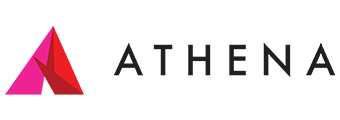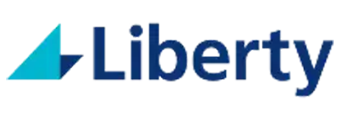Home loan comparison
Lender | |||||||||||||
|---|---|---|---|---|---|---|---|---|---|---|---|---|---|
| Variable | More details | ||||||||||||
| FEATURED | loans.com.au – Variable Home Loan P&I <90%
| ||||||||||||
loans.com.au – Variable Home Loan P&I <90%
| |||||||||||||
| Variable | More details | ||||||||||||
HSBC – Home Value Loan - Owner Occupied (LVR 70% to 80%)
| |||||||||||||
HSBC – Home Value Loan - Owner Occupied (LVR 70% to 80%)
| |||||||||||||
| Fixed | More details | ||||||||||||
Newcastle Permanent – Fixed Rate Home Loan (1 year)
| |||||||||||||
Newcastle Permanent – Fixed Rate Home Loan (1 year)
| |||||||||||||
| Variable | N/A | More details | |||||||||||
Beyond Bank – Purple Basic Variable Home Loan (>60%-80% LVR)
| |||||||||||||
Beyond Bank – Purple Basic Variable Home Loan (>60%-80% LVR)
| |||||||||||||
| Variable | More details | ||||||||||||
Athena Home Loans – Straight Up Owner Occupied - Obliterate (LVR < 50%) (Principal and Interest)
| |||||||||||||
Athena Home Loans – Straight Up Owner Occupied - Obliterate (LVR < 50%) (Principal and Interest)
| |||||||||||||
| Fixed | More details | ||||||||||||
IMB Bank – Fixed Rate Home Loan (Principal and Interest) (LVR < 80%) (1 year)
| |||||||||||||
IMB Bank – Fixed Rate Home Loan (Principal and Interest) (LVR < 80%) (1 year)
| |||||||||||||
| Variable | More details | ||||||||||||
Liberty Financial – Flexible Home Loan LVR >95% (Owner Occupier)
| |||||||||||||
Liberty Financial – Flexible Home Loan LVR >95% (Owner Occupier)
| |||||||||||||

- Available for purchase or refinance, min 10% deposit needed to qualify.
- No application, ongoing monthly or annual fees.
- Quick and easy online application process.
Base criteria of: a $400,000 loan amount, variable, fixed, principal and interest (P&I) home loans with an LVR (loan-to-value) ratio of at least 80%. However, the ‘Compare Home Loans’ table allows for calculations to be made on variables as selected and input by the user. Some products will be marked as promoted, featured or sponsored and may appear prominently in the tables regardless of their attributes. All products will list the LVR with the product and rate which are clearly published on the product provider’s website. Monthly repayments, once the base criteria are altered by the user, will be based on the selected products’ advertised rates and determined by the loan amount, repayment type, loan term and LVR as input by the user/you. *The Comparison rate is based on a $150,000 loan over 25 years. Warning: this comparison rate is true only for this example and may not include all fees and charges. Different terms, fees or other loan amounts might result in a different comparison rate. Rates correct as of July 10, 2025. View disclaimer.
Powered by:
 Savings.com.au
Savings.com.au
Savings.com.au Pty Ltd ACN 161 358 363 | Australian Financial Services Licence and Australian Credit Licence 515843
How much will I save by refinancing?
Using our Upfront Refinance Costs vs. Interest Rate Savings Calculator, you can estimate how long it will take you to recoup the costs of refinancing with a lower interest rate. Just enter the following information:
- Your loan balance
- Your current loan term and the new loan term
- The interest rates on both loans
- The upfront costs of refinancing (like discharge fees, application fees and settlement fees)
By doing so, you may get a better idea of whether refinancing to a certain loan is really worthwhile.
Upfront Refinance Costs vs. Interest Rate Savings Calculator
If you’re looking to save money on your home loan repayments, a good strategy is to refinance your loan. Refinancing can lower your interest rate and shorten your loan term, or convert equity into funds you can use for another purpose, like a new property purchase. But it’s not for everyone. You’ll need to consider the upfront costs involved in refinancing.
What's the total cost of refinancing a home loan?
The cost of refinancing your home loan will vary depending on your individual circumstances. On average, Australian’s can expect to pay anywhere between $800 to $2,000 approximately in total, depending on the fees charged by your existing lender and your new lender.
What fees are charged to refinance?
Generally speaking, there are fees involved when refinancing. This includes the upfront costs of refinancing charged by your new lender, as well as discharge fees that your existing lender might charge you. Here are the most common fees lenders might charge for refinancing.
Mortgage application fees
This is a common upfront fee, usually charged when you are applying for a loan with a new lender. The average mortgage application fee is around $250, while the highest can be as much as $800-$1,000.
Break cost
If your current loan is a fixed rate, refinancing your home loan could incur breaking costs if you decide to refinance before the end of the fixed rate period. Your existing lender will charge this fee to cover the loss to your current lender when you break the fixed term on your loan. Break costs will depend on various factors, including your loan amount and the fixed term remaining. It is best to ask your lender how much they charge for breaking the fixed term on your loan.
Settlement/agent fee
Settlement fees, sometimes referred to as agent fees, are paid to your existing lender to process your discharge and engage their settlement agent or conveyancers services. The average cost to settle a home loan can be about $300, however this can vary anywhere between $100 and $600+, depending on your lender.
Mortgage registration fees
This fee is charged by the State Government to register the security (your property) against your mortgage. The registration fee will vary by state and territory, and generally will cost anywhere between $100 and $180 approximately.
Discharge fees
Discharge fees are charged by your existing lender when discharging your loan. These are charged to cover the costs of preparing and processing your discharge, for example, document preparation. This cost generally ranges between $200 to $800, however may be more or less depending on your lender and their terms.
It is always important to check the terms of your existing loan with your lender to confirm any fees and charges applicable to refinance.
What about ongoing costs and other considerations?
Whilst the above covers the most common fees charged for refinancing, it is important to consider other potential costs when refinancing, such as:
-
Lenders Mortgage Insurance - This usually applies if your loan-to-value ratio (LVR) is over 80%. (i.e. you have less than 20% deposit)
-
Maintenance fees - Some home loans will have ongoing fees for maintaining your mortgage. This can be charged monthly or annually.
-
Introductory rates - Some lenders will offer a variable home loan with an introductory rate, which is often lower at the start to attract new customers. But after a certain period, the rate will switch to a standard rate.
You can use our Upfront Costs vs Interest Savings Calculator to know how much you could save in interest when you refinance, and further compare this saving with how much you will have to pay in upfront costs, to see if refinancing will be worth it for you.
Frequently Asked Questions
Below are some of the most commonly asked questions when refinancing a loan
What are the impacts of refinancing?
Refinancing will likely change your interest rate, and therefore this will impact your ongoing loan repayments.
Refinancing will also likely change your loan term, as your new lender may offer to extend your loan term. Although this will help reduce your repayments as you will be paying off your loan over a longer period of time, you can expect to pay more interest as you will have the loan for longer. It is important to consider how these factors will impact your short term and long term financial situation. Speaking to a Financial Advisor can help set you on the right path.
Do I get a refinance cashback?
A refinance cashback is a marketing promotion used to attract new customers to refinance. Some lenders or banks may offer cashback incentives ranging between $1,000 to $4,000. You may want to check out with the financial institution if they offer this kind of promotion and if so, how to qualify.
How do rate increases and decreases affect repayments?
If you have a fixed interest rate, you are protected from any rate changes during your fixed term.
However, if you have a variable rate home loan, your rate has the possibility of increasing or decreasing depending on market conditions and your lenders funding costs, amongst other factors. If your rate increases, your home loan repayment will likely increase. This works the other way around too - if your interest rate decreases, you will likely see your home loan repayment decrease. To simply calculate how rate changes can affect your loan repayments, you can use our handy home loan calculator.
Do I need a mortgage broker to refinance, or can I do it myself?
You can either engage the services of mortgage broker or deal directly with the lenders if you are planning to refinance your mortgage. There are benefits and disadvantages to each, so the pathway you choose will really depend on your personal circumstances.
Using a mortgage broker to refinance can help take the hassle and headache out of organising your refinance, however mortgage brokers can charge high fees for using their services.
On the other hand, looking to refinance directly with a lender yourself may be a great option for you if you would prefer to do your own research and seek out the best deal. However, you must be prepared for the hassle of processing the refinance yourself, which can end up taking a lot of your time.





